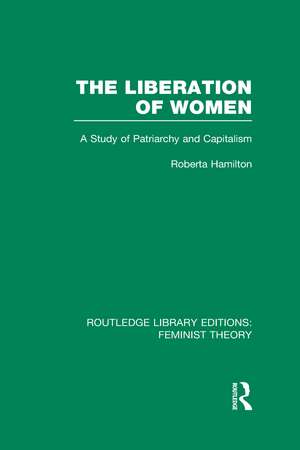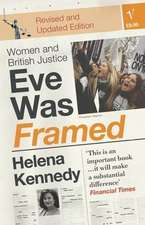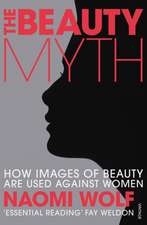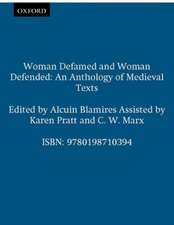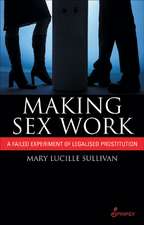The Liberation of Women (RLE Feminist Theory): A Study of Patriarchy and Capitalism: Routledge Library Editions: Feminist Theory
Editat de Roberta Hamiltonen Limba Engleză Hardback – 11 oct 2012
This new work attempts to examine this debate in specific analytical terms through a study of the changing role of women during a particular historical period – the seventeenth century. In the course of less than one hundred years the rise of capitalism and the acceptance of Protestantism had separately and together radically altered every aspect of a woman’s life. Can both a feminist and a Marxist analysis account for these changes? Do such accounts conflict with each other, making a choice inevitable? Do they overlap to such an extent that retaining both would be redundant? Or, finally, are they complementary, can they usefully coexist? To answer these questions Roberta Hamilton tries to work out the changes that can be attributed to the emergence of capitalism (a Marxist explanation) and those that stemmed from the transformation in patriarchal ideology (a feminist explanation).
The Liberation of Women will be of particular interest to students of history, sociology and Women’s Studies and to those who have been involved in the Women’s Liberation Movement. In particular, it will prove essential basic reading for an ever-growing number of courses on sexual divisions in society and the role of women.
Din seria Routledge Library Editions: Feminist Theory
- 36%
 Preț: 626.41 lei
Preț: 626.41 lei - 16%
 Preț: 298.01 lei
Preț: 298.01 lei - 37%
 Preț: 622.99 lei
Preț: 622.99 lei -
 Preț: 411.42 lei
Preț: 411.42 lei -
 Preț: 483.55 lei
Preț: 483.55 lei - 34%
 Preț: 767.38 lei
Preț: 767.38 lei - 33%
 Preț: 532.10 lei
Preț: 532.10 lei - 34%
 Preț: 682.29 lei
Preț: 682.29 lei - 18%
 Preț: 782.30 lei
Preț: 782.30 lei - 34%
 Preț: 625.33 lei
Preț: 625.33 lei - 34%
 Preț: 825.25 lei
Preț: 825.25 lei - 34%
 Preț: 626.94 lei
Preț: 626.94 lei - 34%
 Preț: 767.20 lei
Preț: 767.20 lei - 34%
 Preț: 626.59 lei
Preț: 626.59 lei -
 Preț: 349.58 lei
Preț: 349.58 lei - 36%
 Preț: 827.76 lei
Preț: 827.76 lei -
 Preț: 413.33 lei
Preț: 413.33 lei - 22%
 Preț: 326.81 lei
Preț: 326.81 lei - 33%
 Preț: 771.88 lei
Preț: 771.88 lei -
 Preț: 415.29 lei
Preț: 415.29 lei -
 Preț: 414.91 lei
Preț: 414.91 lei - 38%
 Preț: 769.00 lei
Preț: 769.00 lei - 34%
 Preț: 626.22 lei
Preț: 626.22 lei - 34%
 Preț: 625.68 lei
Preț: 625.68 lei - 34%
 Preț: 767.74 lei
Preț: 767.74 lei - 36%
 Preț: 626.94 lei
Preț: 626.94 lei - 37%
 Preț: 622.99 lei
Preț: 622.99 lei - 33%
 Preț: 10562.98 lei
Preț: 10562.98 lei - 36%
 Preț: 826.15 lei
Preț: 826.15 lei -
 Preț: 417.20 lei
Preț: 417.20 lei
Preț: 623.71 lei
Preț vechi: 984.27 lei
-37% Nou
Puncte Express: 936
Preț estimativ în valută:
119.34€ • 124.62$ • 98.55£
119.34€ • 124.62$ • 98.55£
Carte tipărită la comandă
Livrare economică 15-29 aprilie
Preluare comenzi: 021 569.72.76
Specificații
ISBN-13: 9780415637053
ISBN-10: 0415637058
Pagini: 118
Dimensiuni: 156 x 234 mm
Greutate: 0.38 kg
Ediția:1
Editura: Taylor & Francis
Colecția Routledge
Seria Routledge Library Editions: Feminist Theory
Locul publicării:Oxford, United Kingdom
ISBN-10: 0415637058
Pagini: 118
Dimensiuni: 156 x 234 mm
Greutate: 0.38 kg
Ediția:1
Editura: Taylor & Francis
Colecția Routledge
Seria Routledge Library Editions: Feminist Theory
Locul publicării:Oxford, United Kingdom
Public țintă
Postgraduate and UndergraduateCuprins
Acknowledgements. Introduction. 1. The Changing Role of Women in the Seventeenth Century 2. The Transition from Feudalism to Capitalism: a Marxist Perspective on the Changing Role of Women. The feudal family. The transition to capitalism. A Marxist analysis: two classes. Two classes of women 3. The Transition from Catholicism to Protestantism, a Transformation in Patriarchal Ideology. A Feminist Perspective on the Changing Role of Women: Catholicism, women and the family. The Protestant world-view. The ‘little church’. The implications for women: a win, a loss, or a draw? The feminist analysis: a proper marriage. A proper wife 4. An Examination of the Marxist and Feminist Theories. The debate. The historical test. Bibliography. Index.
Descriere
In The Liberation of Women, Roberta Hamilton explores two of the key questions that have been systematically raised by the Women’s Liberation Movement: why have women occupied a subordinate position in society and how can the variation in the forms and intensity of their exploitation and oppression be explained? Within the Women’s Liberation Movement there have been seen to be two different and opposed answers to these questions: a feminist answer and a Marxist one. This new work attempts to examine this debate in specific analytical terms through a study of the changing role of women during a particular historical period – the seventeenth century. In the course of less than one hundred years the rise of capitalism and the acceptance of Protestantism had separately and together radically altered every aspect of a woman’s life. Can both a feminist and a Marxist analysis account for these changes? Do such accounts conflict with each other, making a choice inevitable? Do they overlap to such an extent that retaining both would be redundant? Or, finally, are they complementary, can they usefully coexist? The Liberation of Women will be of particular interest to students of history, sociology and Women’s Studies and to those who have been involved in the Women’s Liberation Movement. In particular, it will prove essential basic reading for an ever-growing number of courses on sexual divisions in society and the role of women.
